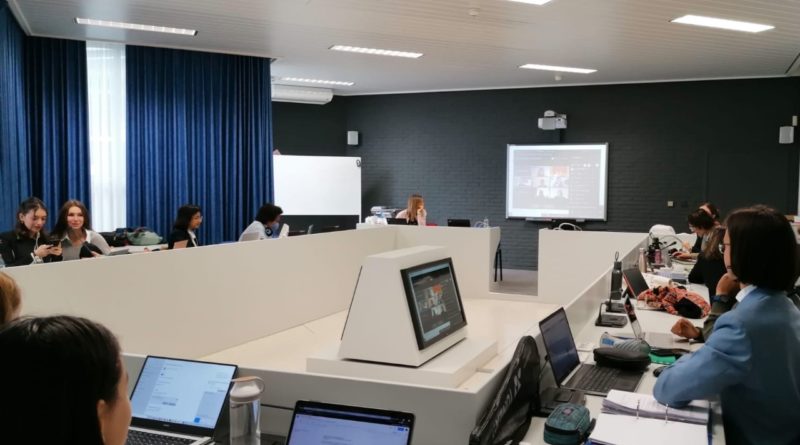UNESCO: a council to remember
I think we can all agree that culture and art hold important roles in our society. This is why UNESCO has worked long and hard together to try and find solutions in order to revive the culture sector that has been put on hold for the past two years due to the COVID-19 pandemic. The main objectives of the council were to discuss adequate funding and make culture accessible to as many people as possible, notably by using technology.
Four alliances presented four different resolutions during UNESCO’s formal debates, all of which were sensibly discussed and amended.
The first resolution, written by Russia, and co-written by Israel, Indonesia, Chili, Japan, Romania, Columbia and South Korea, raised the question: is UNESCO communist?

Clause 2 b) stated: “paid virtual tours can be organised, and the money earned will go to the country virtually visited in order to strengthen its economy.”
Israel, Romania and Egypt spoke out in favour of this clause, agreeing that, since countries have suffered vastly from the previous crisis, they deserve to gain the money they make from virtual, cultural tours in their own heritage sights.
Spain, Chile and South Korea, however, spoke against the clause, proposing that the money should instead go to a global fund provided by UNESCO, where it can then be redistributed equally to countries in need of reviving their culture sector. Spain then questioned Egypt on its hesitance towards showing solidarity to other countries, ‘a key part of UNESCO’s agenda’.
In the end, a middle ground was found between the two viewpoints- a sort of socialism, you could say- where a part of the country’s money, made from its digitised culture, would go to its own personal use, and 5-10% to the global fund.
Moving onto the council’s third resolution, which, moments after it was presented by Egypt, China (former Taiwan) immediately asked if the whole thing could simply be scrapped.
The resolution focused on the importance of education and giving technological access to schools and educational institutions. Egypt, Morocco, Niger, China and Palestine supported this because they believed that education and culture went hand in hand. Thus, by improving the literacy rates of their countries, more children would be able to make use of cultural sites like museums and galleries. On top of that, the resolution proposed to give schools wider access to technology, where students could directly learn about and interact with cultural events and landmarks.
However, the resolution was met by endless disapproval and criticism, as countries like India, China (Taiwan), Pakistan, Mexico, etc, pointed out that there was too much emphasis being put on education, and not enough on how to actually get the culture sector back on its feet. Furthermore, low literacy rates and defunded education systems are more so a structural problem than one that specifically arose from the COVID-19 pandemic, and so the topic deserves a place in an entirely different kind of UNESCO meeting.
Of course, countries thoroughly expressed their desire for better education and more accessibility to it, however – as determined as Egypt was to get its point across- the resolution ended up not passing.
Despite everyone’s differences, and the multiple mishaps delegates made when they referred to themselves in first person or left their mic on during rather questionable moments; the UNESCO council is a truly admirable and loving one. Regardless of all the nit-picky disagreements and bold disputes between delegates, everyone in the council was passionate about helping the global population reach some form cultural unanimity, and as Turkey rightly said: “Culture is a human right, whether in presence or virtually” and to add South Korea’s words: “it doesn’t matter if you’re rich or poor”, we should all help each other rebuild a better world.
Laura Malerba





unesco supremacy.